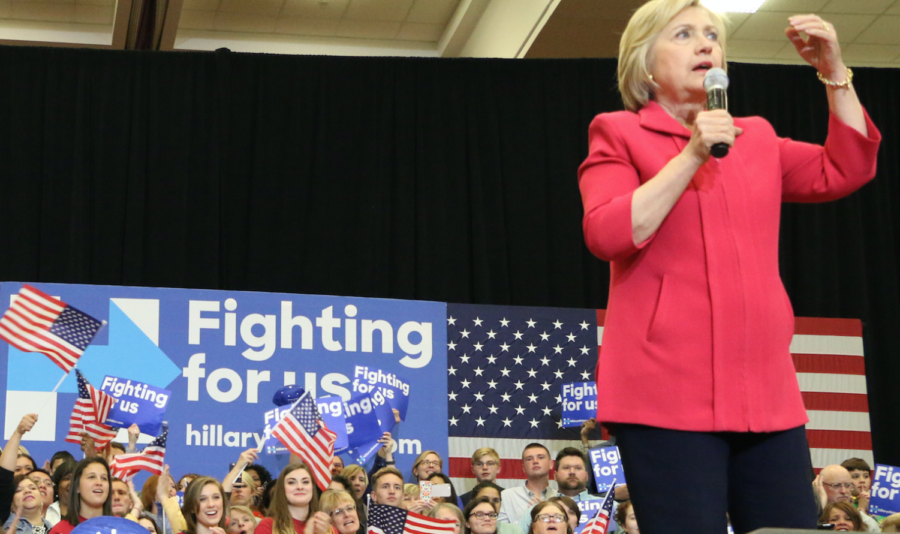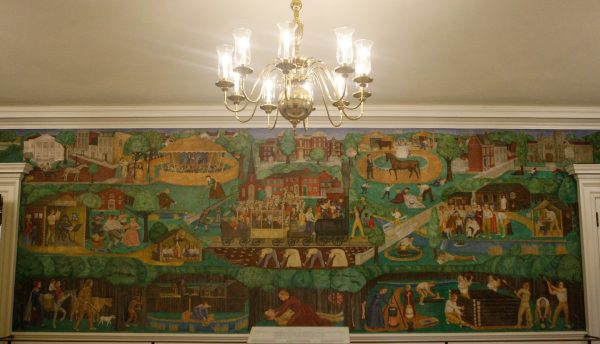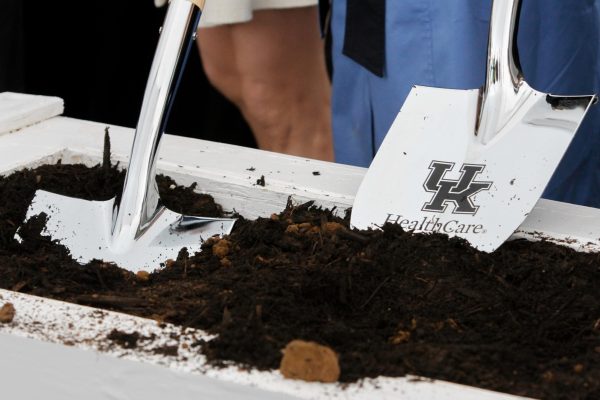Students discuss presidential debate during watch party
Democratic presidential candidate Hillary Clinton speaks to a crowd at Transylvania University’s Clive M. Beck Center on Monday, May 16, 2016.
September 27, 2016
Democratic nominee Hillary Clinton and Republican nominee Donald Trump faced off Monday night for the first time in person, with Lester Holt of NBC News moderating.
Meanwhile, miles from the podiums, UK’s College of Communication and Information hosted a viewing party in room 114 of Whitehall Classroom Building.
Elisia Cohen, professor and the Communications department chair, and Al Cross, professor and director of the Institute of Rural Journalism hosted the event. A panel of fact-checkers, which included Cheyene Miller, former Kentucky Kernel managing editor and graduate of the UK School of Journalism, Marjorie Kirk, the current Kernel editor in chief, and Matt Young, graduate of the UK School of Journalism and current graduate student in the Martin School of Public Policy and Administration, were constantly checking the candidates claims.
Students watched the debate on CNN with a huge projector screen.
As the candidates debated, the panel would check each of the candidates statements and post the findings of whether the statement was true or not to a live Twitter feed with the hashtag #UKPRESDEBATE.
The viewing party was a majority of Clinton Supporters, with no one actively stating they supported the GOP candidate when asked by Cross. This was made even clearer when there were cheers for Clinton and belittlement for Trump statements.
Clinton was very much on the offensive, and connecting with undecided while Trump continually isolated himself with his current supporters. But in the end, the overall debate was considered childish by many of the viewers.
“It really highlighted a lot about the country.” said Laura McAllister, a freshman English major.
Bradee Kemper, a two-year masters student within the Communications Department said Clinton and Trump should have focused more on discussion rather than bickering.
“I think it’s important that students come out and vote because those are the swing votes that we need,” Kemper said. “Students are not voting, younger millennials are not going out to vote and that’s affecting the poles.”
Despite the rather unorthodox debate, one important reason for the viewing was to help branch out to student voters.
“Political debates are one place where you get to see two candidates who are unscripted, and so as an institution of higher education we are a laboratory of democracy and I think it is important to have opportunities (for students) like this,” Cohen said.




















































































































































